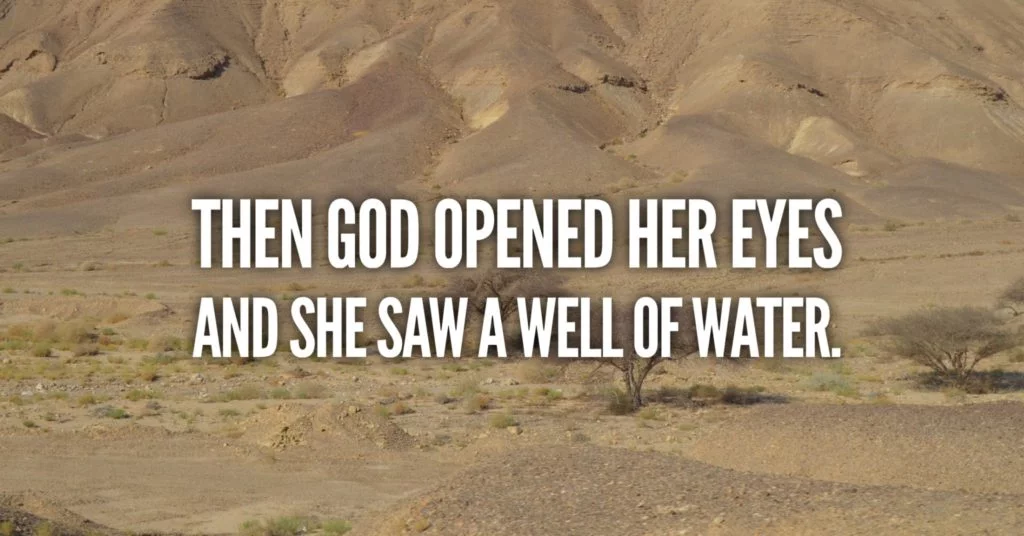
This Sunday we continue our sermon series from Genesis and the Revised Common Lectionary called From Chaos to Community.
Continuing our story in Genesis about Abraham and Sarah, we read a text that can seem particularly dark. And it can seem that way because it is. Sarah’s slave Hagar is sent away into the wilderness with her son Ishmael, and they don’t have enough supplies to survive.
Genesis 21:8-21
8The boy [Isaac] grew and stopped nursing. On the day he stopped nursing, Abraham prepared a huge banquet. 9Sarah saw Hagar’s son laughing, the one Hagar the Egyptian had borne to Abraham. 10So she said to Abraham, “Send this servant away with her son! This servant’s son won’t share the inheritance with my son Isaac.”11This upset Abraham terribly because the boy was his son. 12God said to Abraham, “Don’t be upset about the boy and your servant. Do everything Sarah tells you to do because your descendants will be traced through Isaac. 13But I will make of your servant’s son a great nation too, because he is also your descendant.” 14Abraham got up early in the morning, took some bread and a flask of water, and gave it to Hagar. He put the boy in her shoulder sling and sent her away.
She left and wandered through the desert near Beer-sheba. 15Finally the water in the flask ran out, and she put the boy down under one of the desert shrubs. 16She walked away from him about as far as a bow shot and sat down, telling herself, I can’t bear to see the boy die. She sat at a distance, cried out in grief, and wept.
17God heard the boy’s cries, and God’s messenger called to Hagar from heaven and said to her, “Hagar! What’s wrong? Don’t be afraid. God has heard the boy’s cries over there. 18Get up, pick up the boy, and take him by the hand because I will make of him a great nation.” 19Then God opened her eyes, and she saw a well. She went over, filled the water flask, and gave the boy a drink. 20God remained with the boy; he grew up, lived in the desert, and became an expert archer. 21He lived in the Paran desert, and his mother found him an Egyptian wife.
Consider these questions:
- How have you heard this story justified? Is Sarah’s jealousy justified by marital fidelity?
- What context is important to this story?
- Are there times in our own time/culture where we justify terrible treatment of others?
- Does context play into those times? Or not so much?
Post-Sermon Update on 6/27
Audio from the sermon can be heard below, and video can be found by clicking this link (will open in a new tab).
Audio Player
The sermon began on Sunday with an acknowledgment of the challenging nature of this text. When read in the appropriate context, the casting out of Hagar and Ishmael is made even worse. I hoped to illustrate the horrific treatment of Hagar and Ishmael, though it was brought to my attention that perhaps I let Abraham off moreso than was appropriate. Let me be clear in this update: Abraham’s treatment was as bad or even worse than Sarah’s. Even with this terrible treatment, God continued to to be present with those who were cast aside.
I also suggested during the message time that there might be an opportunity to see the possibility of recognizing and reconciling broken relationships. This was suggested especially through engaging in conversations where the main priority is listening over talking.
Consider these questions:
- What do you do with scriptures that seem inconsistent with your understanding of God? How does your relationship with God inform your reading of any scriptures?
- Do you ever feel like your relationship with God is strained? How does reading scripture affect this (or how is reading scripture affected by this)?
- How can conversations help to heal strained or broken relationships? Do you agree that these conversations can move along even further when we listen more than speak? Do you find this easy?
